|
Please find below a press release from the RSPCA. 
Wednesday 9 July 2025
Newborn kittens abandoned in bin are now thriving and looking for new homes They each weighed 120 grams and still had their umbilical cords attached 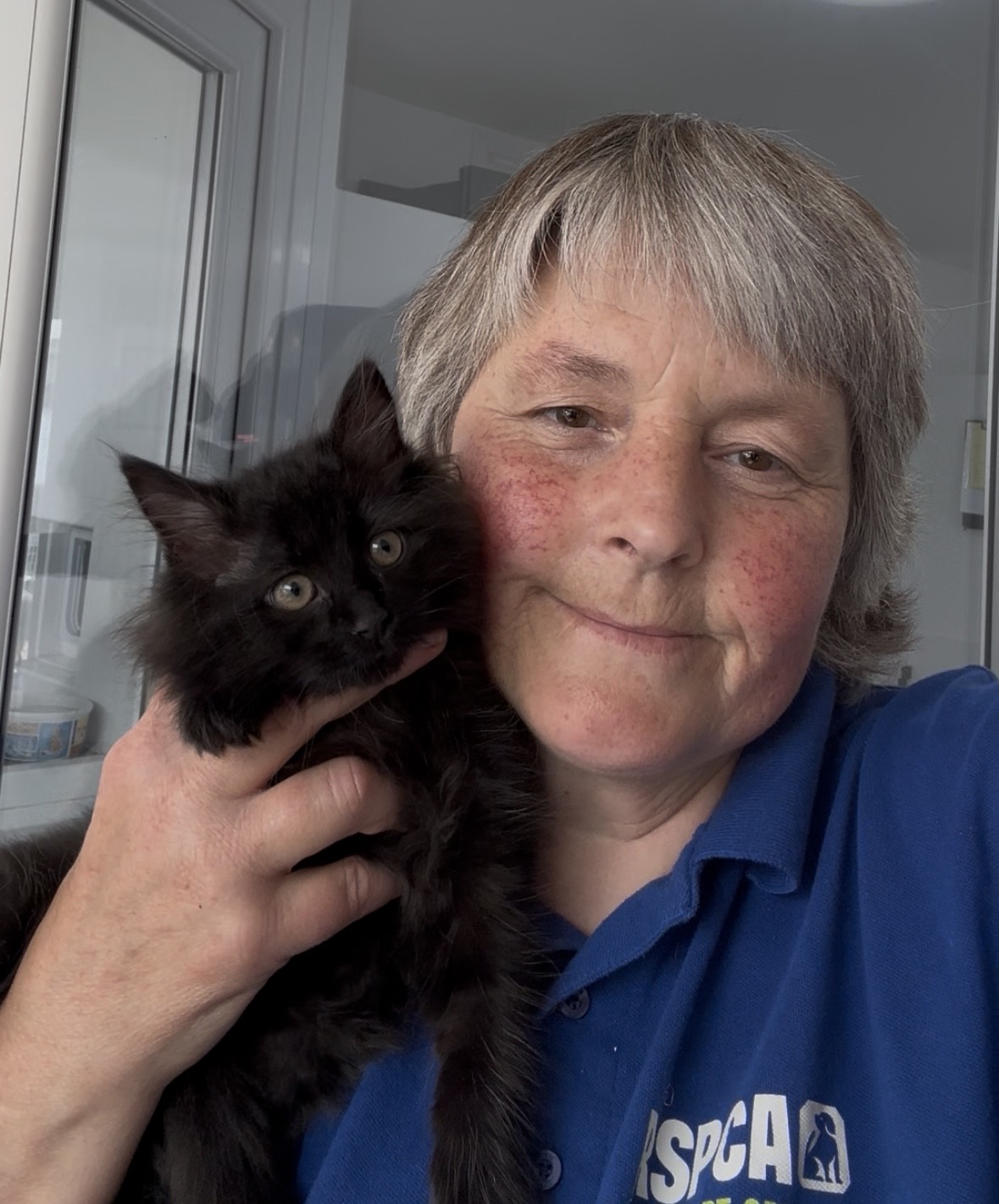
Two newborn kittens hand-reared by the RSPCA are now looking for new homes, nearly three months after they were abandoned in a litter bin in Lancashire. The kittens, who were between three and five days old, were found along with their two siblings in a Tesco shopping bag in a litter bin in Penwortham on April 17 after a member of the public heard them crying. Wrapped in a blanket, they each weighed 120 grams (4.23 ounces) and still had their umbilical cords attached. The RSPCA was alerted and they were collected from the person who found them by Animal Rescue Officer Mike Man and taken to the charity’s Greater Manchester Animal Hospital for examination and treatment. They were then placed in the care of Anne Mitchell, Animal Care Manager at the RSPCA’s Southport, Ormskirk & District Branch, who has been hand-rearing kittens for 40 years. 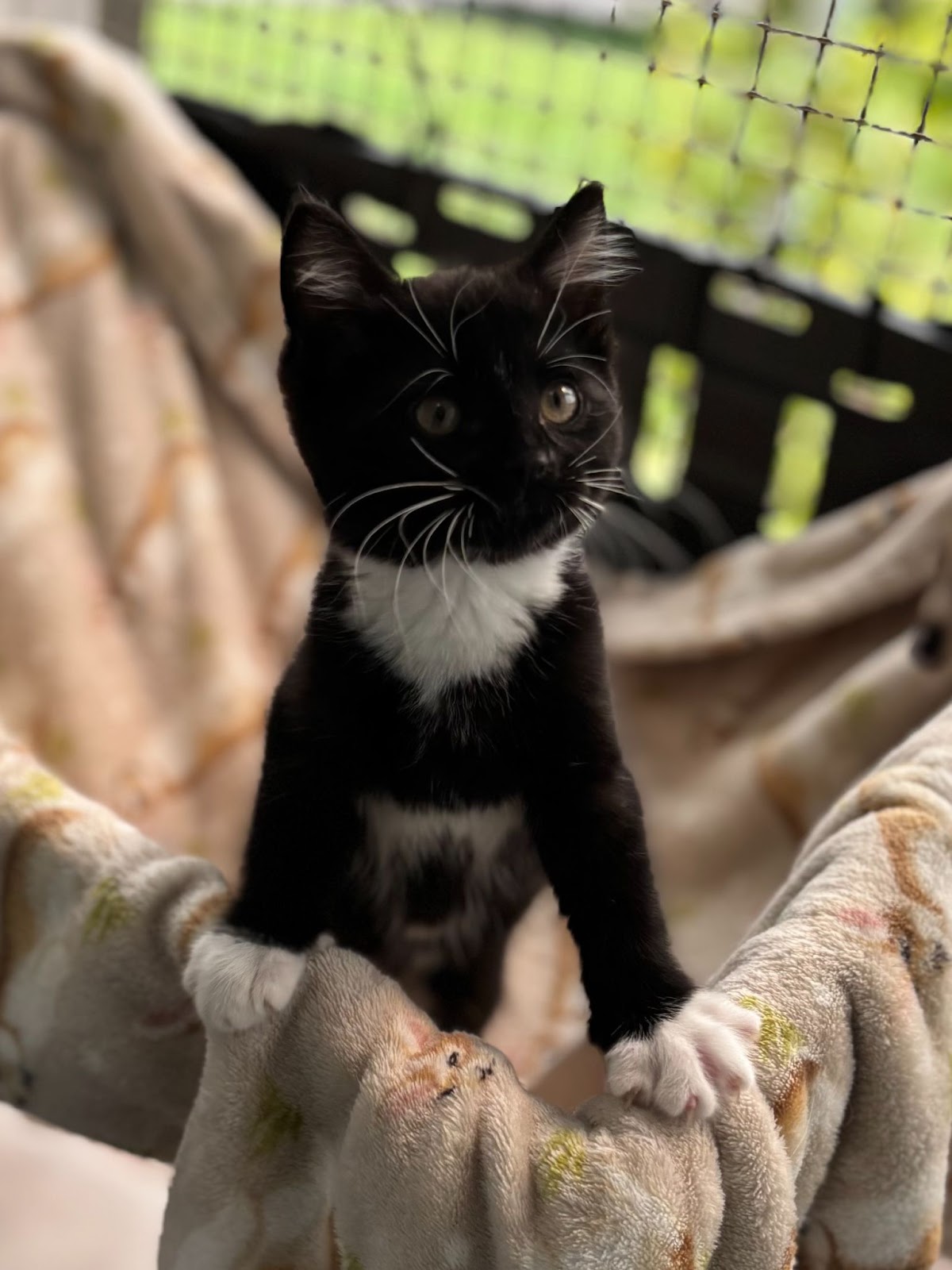
An incubator funded by supporters of the Branch made a "huge difference" in helping the cats, who now each weigh over 1kg. The litter, three females called Buttercup, Daisy and Foxy and a male called Bud, were placed in two incubators and fed around the clock every two to three hours. Anne said: “It’s never easy with newborn kittens as they need to be constantly monitored. The first eight weeks can be tricky, especially when the time comes to wean them as the mother cat usually instinctively knows when to do this. “We now have two incubators, one of which was fundraised by our supporters, and they have made a huge difference as it means we can provide a constant, warm temperature which is absolutely critical for newborn kittens as they can’t regulate their own body temperature effectively for the first few weeks of life.” 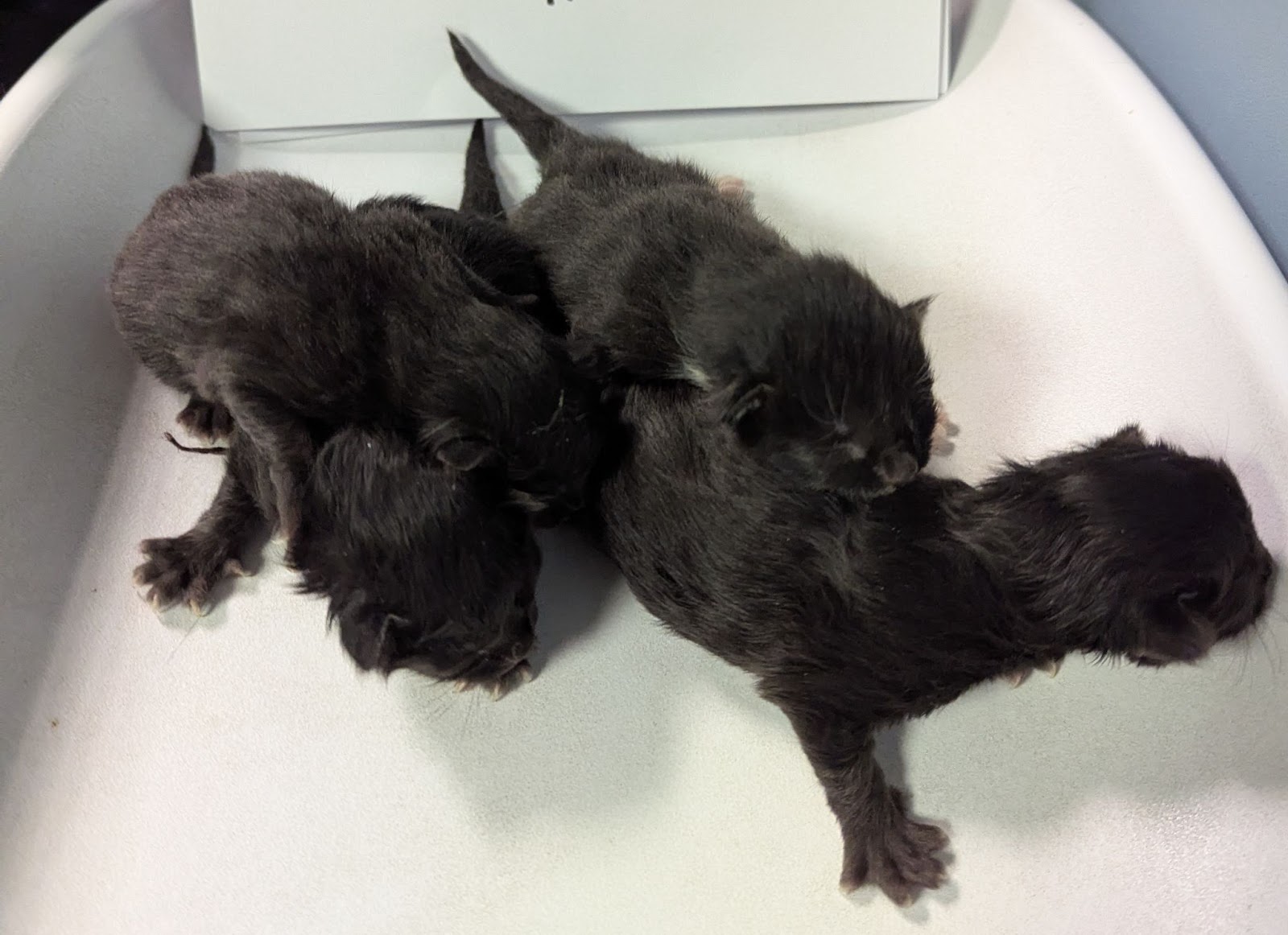
Once the kittens were old enough they were placed in a foster home to help them become more socialised and familiar with a home environment. Anne added: “I can normally tell quite quickly if a litter is going to pull through and I was quietly optimistic with this group. They went from strength to strength and started to play and interact with one another in that lovely way that kittens do. “I think I must have bottle fed hundreds of kittens over the years but it always makes me smile when someone comes into the centre and says, ‘we adopted one of your hand-rears,’ and they show me a picture. It’s a lovely feeling knowing you helped that kitten many years ago and they have gone on to lead a happy and healthy life.” 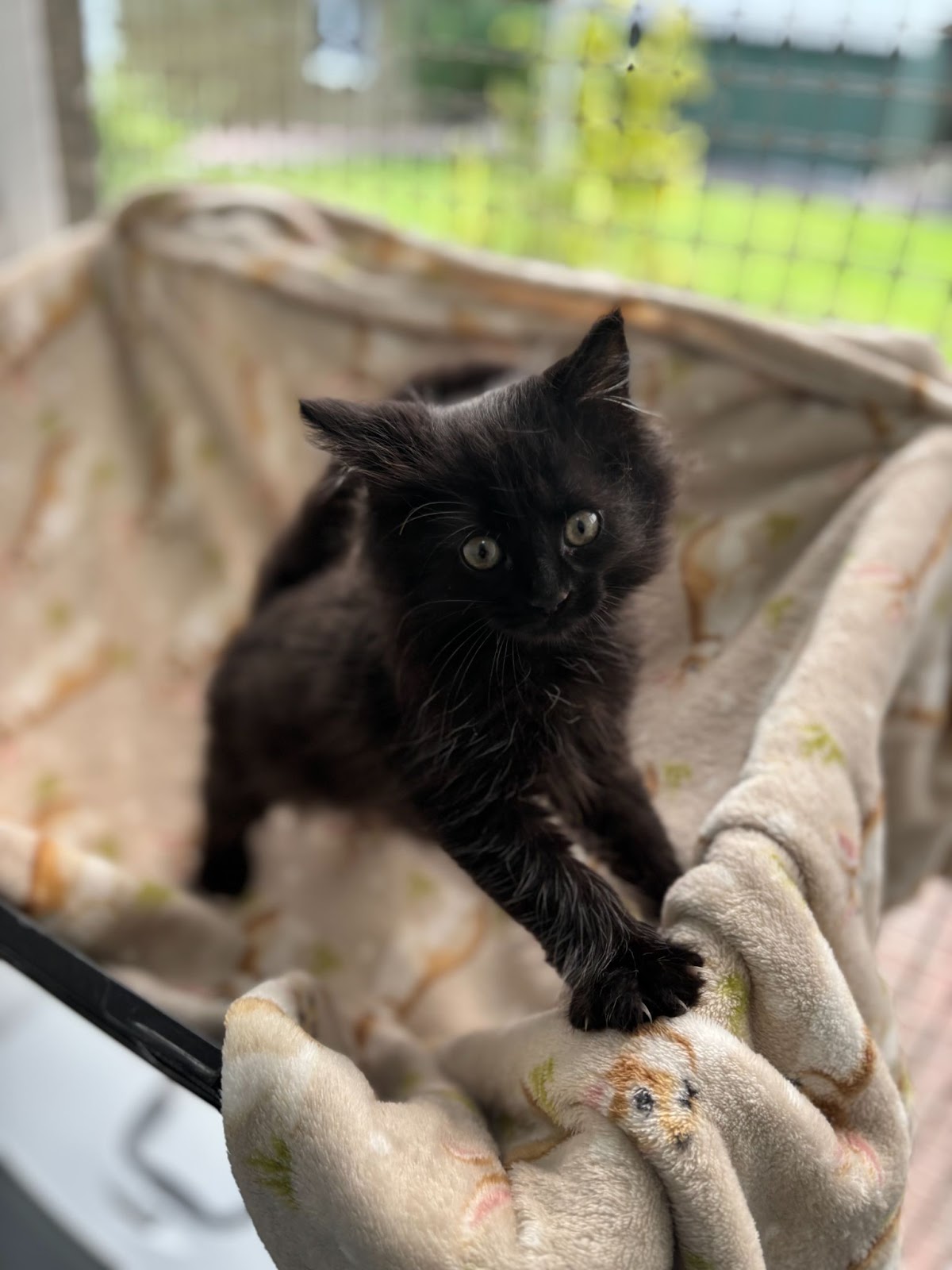
Bud and Foxy are enjoying life with a new family after they were rehomed last week, but their siblings Buttercup and Daisy and many other adult cats and kittens are still waiting at the branch’s animal centre. For further details about how to adopt visit their website. Enquiries and checks for CCTV were carried out in the wooded area on Hill Road South, between Stricklands Lane and Abbot Meadow, where the kittens were found. The RSPCA is continuing to appeal to anyone with information about the incident to call the charity’s appeal line on 0300 123 8018, quoting reference number 01496008. Over 20,000 cats are rescued by the animal welfare charity every year which, along with other cat and veterinary organisations, has long highlighted the importance of neutering as part of responsible pet ownership. Cats are prolific breeders and females can get pregnant from around four months old, giving birth to up to 18 kittens a year. The charity sees a peak in cats coming into its care between May and September - when most babies are born. 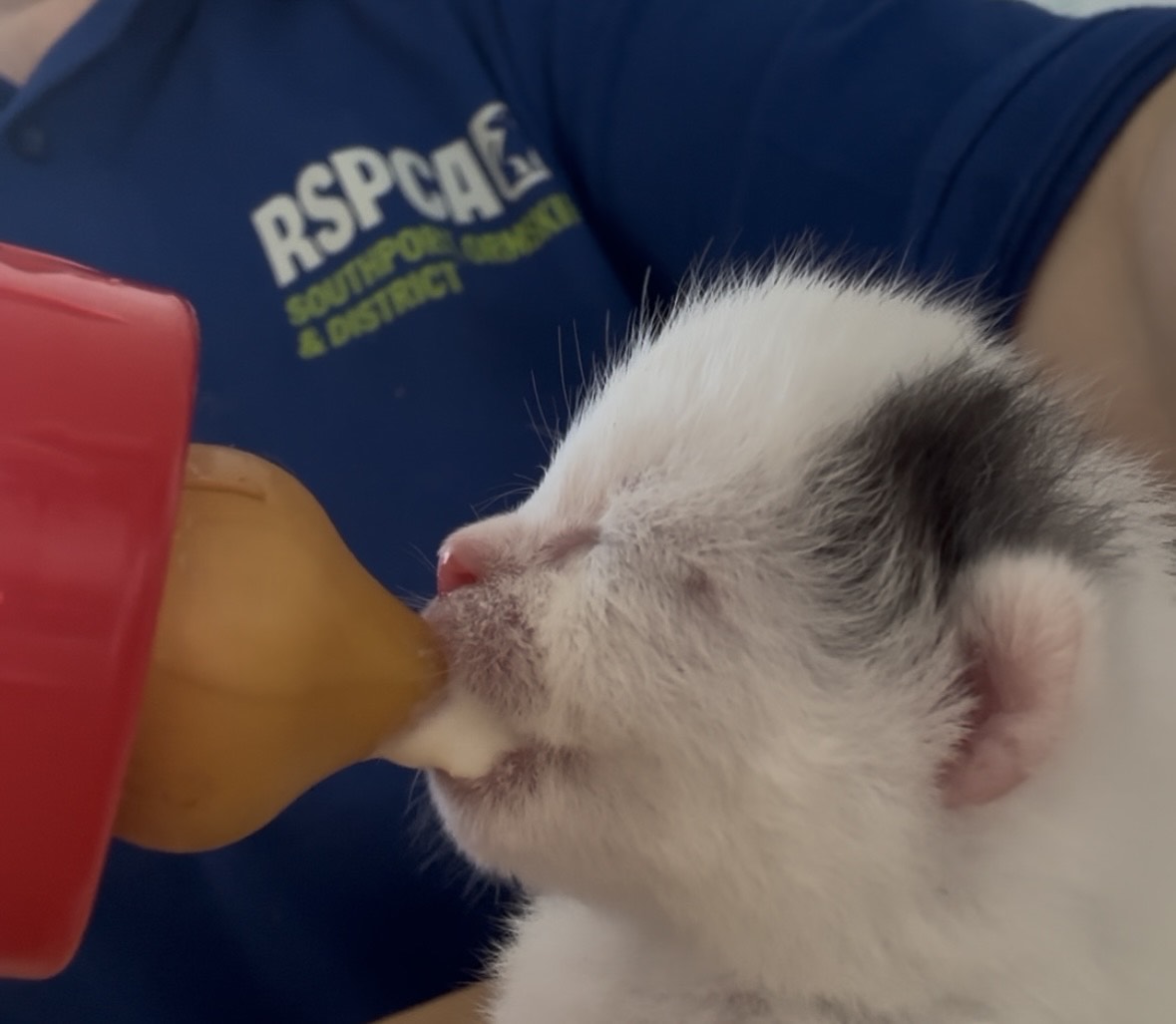
For the cat population to be controlled, the timing of neutering as well as the overall number of cats neutered is critical. Sadly, many female cats are unneutered by the time they reach a year old, meaning they could have already had at least one litter. Neutering also means cats lead healthier, happier lives. Neutered cats, especially males, are less likely to roam far from home or get into fights with other felines, both of which can increase their risk of injury or becoming ill. With the rising cost of living, the RSPCA encourages cat owners to plan ahead, make sure they are registered with a vet, explore whether local charities can offer neutering vouchers in their area and take out pet insurance to help cover unexpected costs.
ENDS
Note to Editors: The RSPCA’s Southport, Ormskirk & District Branch is a separate, self-funding charity which has been looking after abandoned, neglected and cruelly treated animals from across Lancashire and Merseyside since 1963. The Branch’s rehoming centre in New Cut Lane currently has 87 cats and dogs in its care.
Images are available from this link.
|